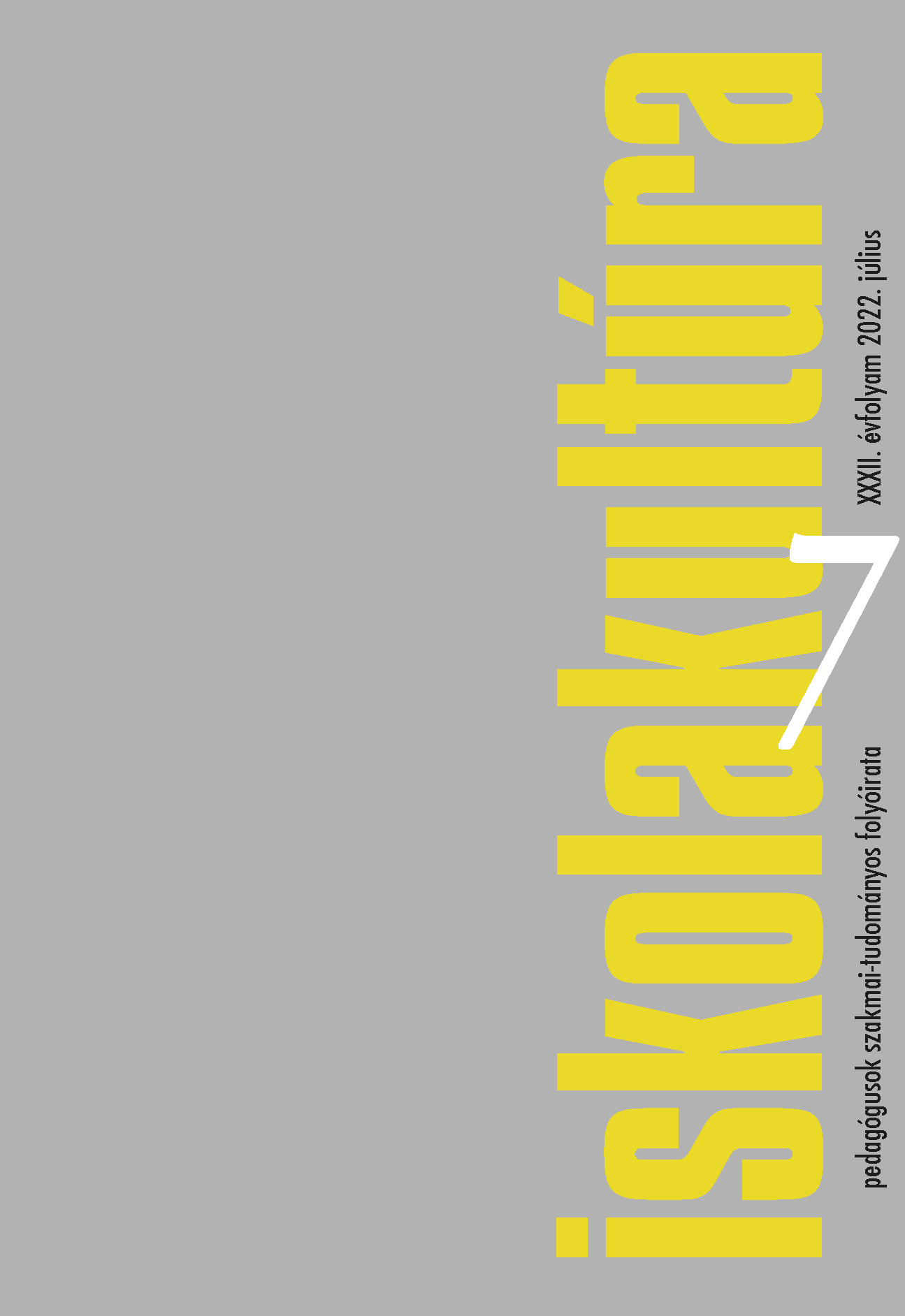Developing inductive reasoning in an educational robot-assisted development environment
Main Article Content
Abstract
The impact of an inductive reasoning (IR) development programme for young schoolchildren based on educational robotics is evaluated and results are reported in the present study. IR is not only a fundamental skill for learning and applying knowledge, but also a teachable and developable one. Educational robots could be among the 21st-century tools to imrpove IR by. In this research, we used Blue-Bot, Codey Rocky, Edison and Ozobot robots to develop IR skills among young students. The programme was used with first to fourth graders (N=18) for four weeks. The control group consisted of learners who were similar in terms of background variables and ability level after student-level matching (N=90). The effectiveness of spontaneous and school-based implicit and explicit development during the time interval noted above was measured using an online IR test at the beginning and end of the research (Cronbach’s α=0.88). There was no significant difference in the pre-test performance of the experimental and control groups [Mcontrol=46.72%, Mexperimental=46.80%, t(106)=0.017, p=0.987]. In terms of the ability being tested, the average performance of both control and experimental groups showed significant change and improvement during the development period. This means that the age of the sample was sensitive to the development. Members of the experimental group performed significantly higher on the post-test than those in the control group [Mcontrol=57.71%, Mexperimental=61.16%, t(106)=1.676, p=0.097]. The effect size of the programme was Cohen’s d=0.75 (p<0.01). The findings of the study suggest that with the application of properly integrated learning methodology principles, the motivational basis for educational robotics can be used to effectively improve lower-grade school students’ IR skills with no more than one month of targeted development. It is vital to improve these skills since they are a key for learning and applying knowledge.
Downloads
Article Details
Funding data
-
Hungarian Scientific Research Fund
Grant numbers K135727 -
Magyar Tudományos Akadémia
Grant numbers KOZOKT2021-16
References
Aknai, D. O. (2020). A robotika szerepe az SNI tanulók fejlesztésében. Gyermeknevelés Tudományos Folyóirat, 8(2), 146–163.
Csapó, B. (1998). Az új tudás képződésének eszköze: az induktív gondolkodás (pp. 251–280). In. B. Csapó (Ed.), Az iskolai tudás. Budapest: Osiris Kiadó.
Csapó, B. (2002). Az iskolai tudás. Budapest: Osiris Kiadó.
Csapó, B. (2003). A képességek fejődése és iskolai fejlesztése. Budapest: Akadémiai Kiadó.
Csapó, B., Molnár G., & R. Tóth, K. (2009): Comparing paper-and-pencil and online assessment of reasoning skills: A pilot study for introducing TAO in large-scale assessment in Hungary (pp. 113–118). In. F. Scheuermann & J. Björnsson (Eds.), The transition to computer-based assessment: New approaches to skills assessment and implications for large-scale testing. Luxemburg: Office for Official Publications of the European Communities..
Cohen, J. (1988). Statistical power analysis for the behavioral sciences. Hillsdale, New Jersey: Erlbaum.
Fehér, P. (2020). „Húsz év múlva” – A digitális oktatás helyzete, eszközei, trendjei világszerte. Gyermeknevelés Tudományos Folyóirat, 8(2), 350–372.
Klauer, K. J. (1989). Denktraining für Kinder I. Gottingen: Hogrefe.
Klauer, K. J. (1997). A tanulás és a kognitív képességek fejlesztése. Az induktív gondolkodást fejlesztő tréning. Iskolakultúra, 7(12).
Lénárd, A. (2018). Az algoritmikus gondolkodás fejlesztése padlórobotok segítségével. Stiefel Eurocart.
Majzik, T. (2020). Oktatási robotokkal támogatott magyarórák. Magiszter,18(1), 51–58.
Molnár, G. (2011). Playful fostering of 6- to 8-year-old students’ inductive reasoning. Thinking skills and Creativity, 6(2), 91–99.
Molnár, G. (2006). Az induktív gondolkodás fejlesztése kisiskolás korban. Magyar Pedagógia,106(1), 63–80.
Molnár, G. (2018). Hozzájárulás a digitális pedagógia jelenéhez és jövőjéhez (eredmények és perspekítvák). MTA-BME Nyitott Tananyagfejlesztés Kutatócsoport Közlemények, 4(1), 1–70.
Molnár, G. (2021). Az IKT szerepe a felsőoktatás megújításában. Magyar Tudomány, 182(11).
Molnár, G. & Csapó, B. (2011). Az 1-11. évfolyamot átfogó induktív gondolkodás kompetenciaskála készítése a valószínűségi tesztelmélet alkalmazásával. Magyar Pedagógia, 111(2), 127–140.
Molnár, G. & Csapó, B. (2019). A diagnosztikus mérési rendszer technológiai keretei: az eDia online platform. Iskolakultúra, 29(4–5), 16–32.
Molnár, G., Pásztor, A., Kiss, R., & Csapó, B. (2021). Az eDia online diagnosztikus értékelő rendszer: a személyre szóló fejlesztés alapvető eszköze. Új Pedagógiai Szemle, 71(09-10), 42-53.
Molnár, G., Turcsányi-Szabó, M., & Kárpáti, A. (2019). Az interaktív tanulási környezetektől a módszertani megújuláson át a kreatív önkifejezésig. Új Pedagógiai Szemle, 69(11–12), 53–70.
Pluhár, Zs. (2017). Robotikáról tanároknak. ELTE Informatikai Kar.
Pásztor, A. (2016). Az induktív gondolkodás technológia alapú mérése és fejlesztése. PhD- értekezés, SZTE BTK Neveléstudomány Doktori Iskola, Szeged.
Wu, H. & Molnár G. (2018). Computer-based assessment of Chinese students’ component skills of problem solving: A pilot study. International Journal of Information and Education Technology, 8(5), 381–356.

